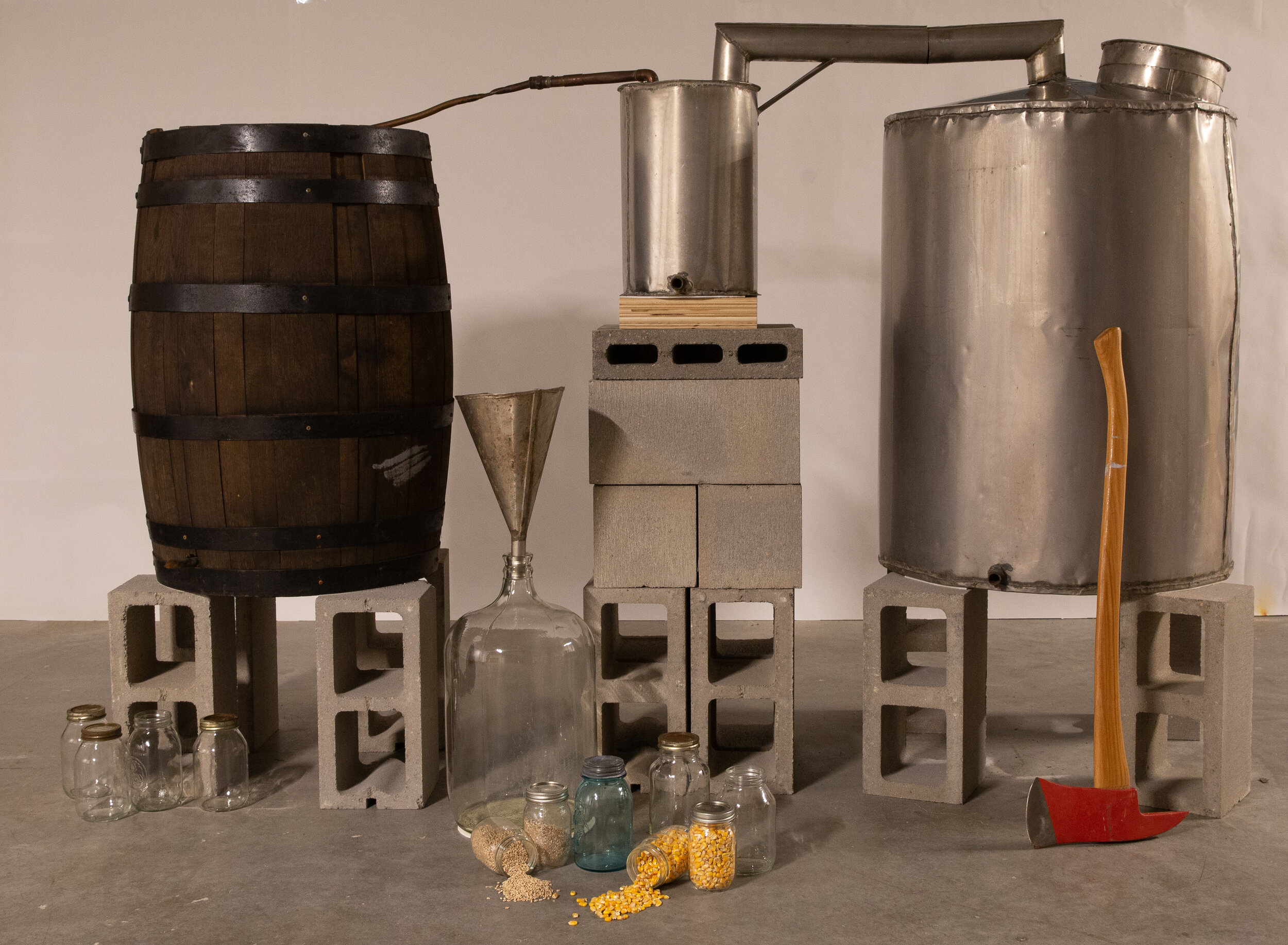Mississippi: Legally Dry but Soaking Wet and Often Violent
At Mississippi Distilled: Prohibition, Piety, and Politics, an exhibition at the Two Mississippi Museums in Jackson, visitors learn that Prohibition lasted 58 years here. In 29 counties that remain dry, it lives on — at least until January 2021, when a new law says residents can possess alcohol.
Around the turn of the 20th century, the redoubtable Carrie Nation and her sister members of the Woman’s Christian Temperance Union, were throwing stones through tavern windows and wielding hatchets to break open whiskey barrels and spill the contents. They earned reputations as prudes and killjoys. But the Temperance Union were campaigning for prohibition because heads of families were spending their pay on liquor and returning home drunk to beat their wives and children. Nation opened a home for wives and children of alcoholics — in effect, the first shelter for battered women and their children.
An illegal still from the Delta and a step-by-step demonstration of transforming corn mash into moonshine are part of the Mississippi Distilled: Prohibition, Piety, and Politics exhibition at the Two Mississippi Museums in Jackson. Courtesy of Two Mississippi Museums
“It was fascinating to learn about the different causes that temperance groups were working for,” said Barbara McClendon, curator of Mississippi Distilled. Among these issues were votes for women, an end to lynching and enactment of child labor laws, as well as preventing domestic violence. Since women couldn’t vote, McClendon said temperance campaigners “used different methods to accomplish their aims.”
In Mississippi, she pointed out, the Temperance Union, led by members like Carrie Nation and Carrie Belle Kearney, Mississippi's first female state senator, collaborated with the Anti-Saloon League, whose members included Methodist Bishop C.B. Galloway. Thanks in part to the importance of churches in Mississippi, it became a dry state in 1908, 12 years before the 18th Amendment to the U.S. Constitution banned the making, transporting and selling of liquor throughout the country. Abstaining from alcohol became the 11th commandment in Bible Belt Mississippi.
Nevertheless, for the next 60 years, Mississippi earned a reputation as “the wettest dry state.” Mississippi Distilled includes an illegal still from the Delta, a step-by-step demonstration of transforming corn mash into moonshine, and a replica of the type of juke joint where many Delta blues singers launched their careers.
By 1964, writer and civil rights activist Florence Mars reported that “Neshoba was one of the wettest counties in the dry state of Mississippi.” Neshoba County, still officially dry, was the site of the murder and secret burial of three young civil rights workers in the summer of 1964, and Mississippi saw the most lynchings and some of the worst civil-rights violence of any state. While Mississippi Distilled doesn’t say so, perhaps moonshine contributed to the violence. John Grisham’s latest novel, A Time for Mercy, opens in 1990 with a horrific scene of domestic violence where the abuser is almost fatally drunk on moonshine.
During the pandemic, liquor stores have remained open as essential businesses, and sales have spiked. Last week as the public waited for election results, liquor stores did record business. Alcohol certainly has contributed to domestic violence as victims have been sheltering in place with their abusers making “quarantinis.”
As the Temperance Union did, could those fighting domestic violence partner with Mississippi’s many churches? Jackson alone has 900. Methodists already are offering a ray of hope: Their bishop, whose mother was killed by his stepfather, has set up a task force that trains clergy to help victims.
Mississippi Distilled remains on view until June 26, 2021. For hours and admission fees, see msdistilled.com.
Ann Marie Cunningham is a Columbia University Lipman Fellow for 2020 who will be working with the Mississippi Center for investigative Reporting. She is a veteran journalist/producer and author of a best-seller. Her work has appeared in The New York Times, Los Angeles Times, Technology Review, The Nation and The New Republic. Contact her at amclissf@gmail.com.


